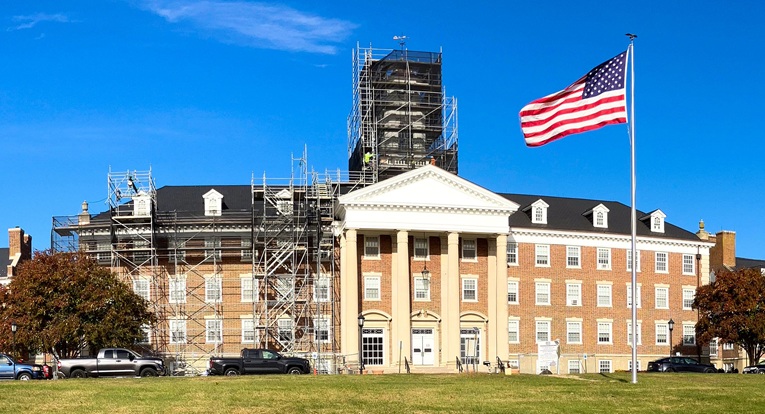This is the second of three parts of a report on the November 30 worksession between Prince George’s County Executive Angela Alsobrooks and the Greenbelt City Council.
Council addressed a number of city- and county-related issues in which transportation played a significant role in the discussion, both during and beyond the pandemic. The discussion on the county’s response to and plans for beyond the coronavirus pandemic was reported in last week’s News Review.
Maglev
Both Mayor Colin Byrd and Councilmember Rodney Roberts spoke in criticism of the maglev project and Beltway widening and in support of transportation initiatives and priorities to support the Washington Metropolitan Area Transit Authority (WMATA). Alsobrooks was vehement in her condemnation of both projects, saying that, “We do not deserve to be run over with more pavement and concrete.” In response to a question from Councilmember Judith Davis, Alsobrooks replied that she is happy to go on record as opposing both projects and that she will join in efforts that allow her to oppose them. Alsobrooks noted that she’s interested in projects that help people get around in Prince George’s County, not projects that are directed at getting people through the county to somewhere else. Of maglev, she said, “it comes through at a zillion miles an hour and doesn’t even stop here,” and expressed disbelief that it would ever, in fact, be built. Also in opposition to the high-speed rail system, Councilmember Leta Mach pointed out that the assertions about additional jobs associated with maglev and the Beltway lane addition have not been clarified or validated and that she “doesn’t believe anything the maglev project says.” Alsobrooks echoed that the county is “shocked and angered” by how lightly the promotors of these projects take coming through the county with “no regard to the benefit of the people living there.” In the ensuing discussion, Councilmember Emmett Jordan noted that the resources that would be spent on maglev and widening the Beltway are needed to support WMATA, which has lost 70 percent of its income during the pandemic. He pointed out that the bulk of WMATA’s employees live in Prince George’s County and that over 3,100 bus and rail service jobs have been lost.
Beltway Widening
Alsobrooks commented that the widening project also was designed to benefit others and not Prince George’s, stating, “We always are considered last.” Department of Public Works and Transportation Deputy Director Martin Harris, speaking for the county transportation office, remarked that he was still trying to figure out the rationale from a transportation point of view and is trying to get any information that shows the benefit to Prince George’s County. His priority is to help get county residents through and around the county. Roberts remarked that the coronavirus has shown that a lot of people can work at home which may reduce commuting, and that “there is no profit in a private partnership to make a route that only rich people can afford to ride.”
Roberts also viewed it as antithetical to encourage widening highways when climate change is a concern. He pointed out that the automobile is not a good way for large numbers of people to move around and that, in an era of climate change, investing in mass transit is key. Alsobrooks agreed.



